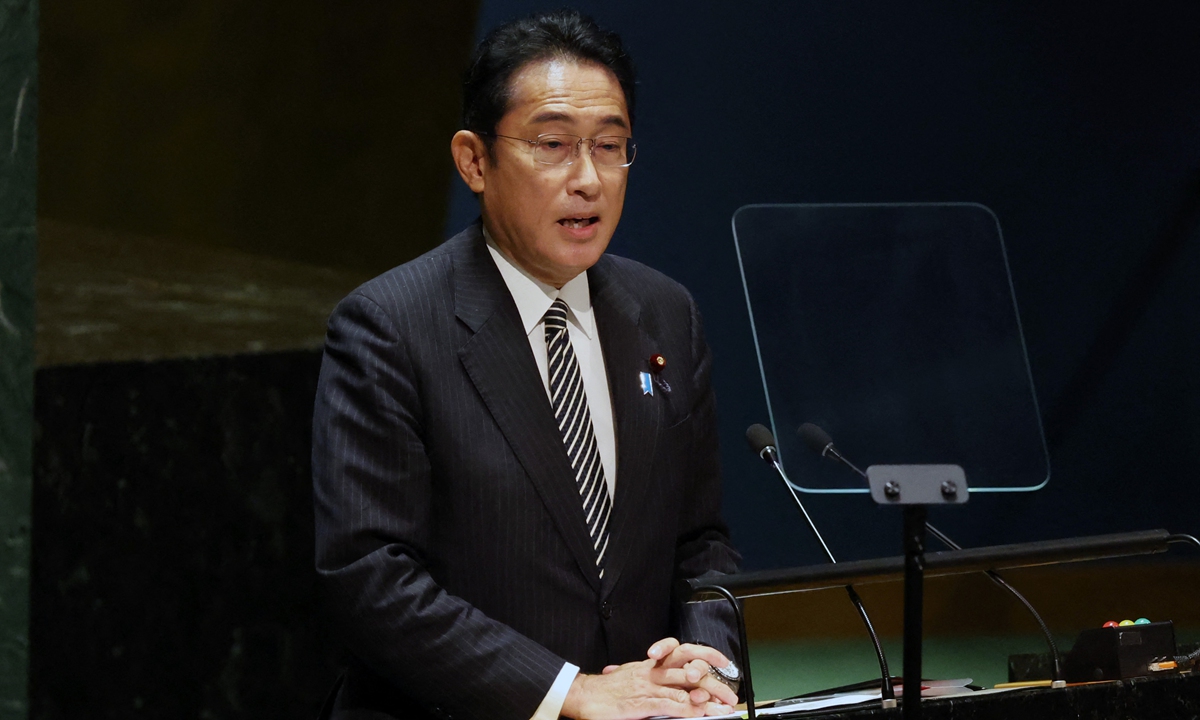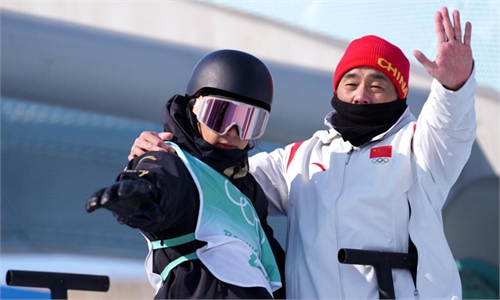Kishida may attend event marking 50th anniversary of ties, but more concrete actions are needed to ease tensions: analysts

Prime Minister of Japan Fumio Kishida. Photo: AFP
Japanese Prime Minister Fumio Kishida is considering attending a business event to mark the 50th anniversary of the normalization of diplomatic relations between the two countries, as hostile remarks by some Japanese politicians and Japan's meddling in the Taiwan question overshadow bilateral relations.
Chinese observers noted it is important that both countries summarize their experience in the past half century to deal with today's difficulties and urged Japan not just to talk the talk, but also to walk the walk.
Kishida is considering attending a business event to mark the anniversary late this month, the Kyodo News cited sources as saying on Sunday.
The Japan Business Federation, the country's most powerful business lobby better known as Keidanren, and groups dedicated to promoting Japan-China friendship will organize the event on September 29, according to the Kyodo News.
On Friday, Foreign Minister Yoshimasa Hayashi expressed at a press briefing willingness to meet with Chinese State Councilor and Foreign Minister Wang Yi, possibly on the sidelines of the UN General Assembly scheduled from September 21 through 27.
"I believe dialogues [with China] on various levels are important," Hayashi said.
Da Zhigang, director of the Institute of Northeast Asian Studies at Heilongjiang Provincial Academy of Social Sciences, told the Global Times on Monday that Japan knew the importance of China ties despite its geopolitical inclination toward the US.
"Bilateral relations are far more than a political aspect," the expert said, citing $370 billion trade in 2021. He noted that China always cherishes the voices and forces inside Japanese society that have been working to enhance bilateral relations.
The touching story between Chinese snowboarder and Olympic gold medalist Su Yiming and his Japanese coach Yasuhiro Sato was a key episode of people-to-people exchanges.
However, experts also urged Japan, particularly its politicians and policymakers, to listen to domestic calls for improving relations with China and abide by the four China-Japan political documents.
In addition to active participation in US-led anti-China cliques like the Quad and a revival of militarism that has drawn concern among victims of the Japanese aggresssion during World War II, Japan has been meddling in the Taiwan question.
Japan, with other G7 countries, neglected the provocative nature of US House Speaker Nancy Pelosi's visit to the island of Taiwan and criticized China's rightful countermeasures, including military drills surrounding the island, as "threatening." That led to the cancelation of talks between the two foreign ministers Wang and Hayashi.
Japan faces its own social, systemic and geopolitical realities and the alliance with the US was a major hurdle to ties. However, to properly handling relations with its neighbor including China, Japan must act carefully rather than blindly follow the US, observers said.
To put it simply, Japan's cooperation with the US must not target China, otherwise China will react firmly with a strong determination to safeguard its core interests, Da said.
Da said it is necessary for Japan to have a bigger vision for bilateral relations and choose what's beneficial for the country in the long term.
Looking into the future, Da believed it is important to manage differences, have a strong sense of risk control and maximize the positive elements in non-governmental exchanges to add development momentum to bilateral relations.

